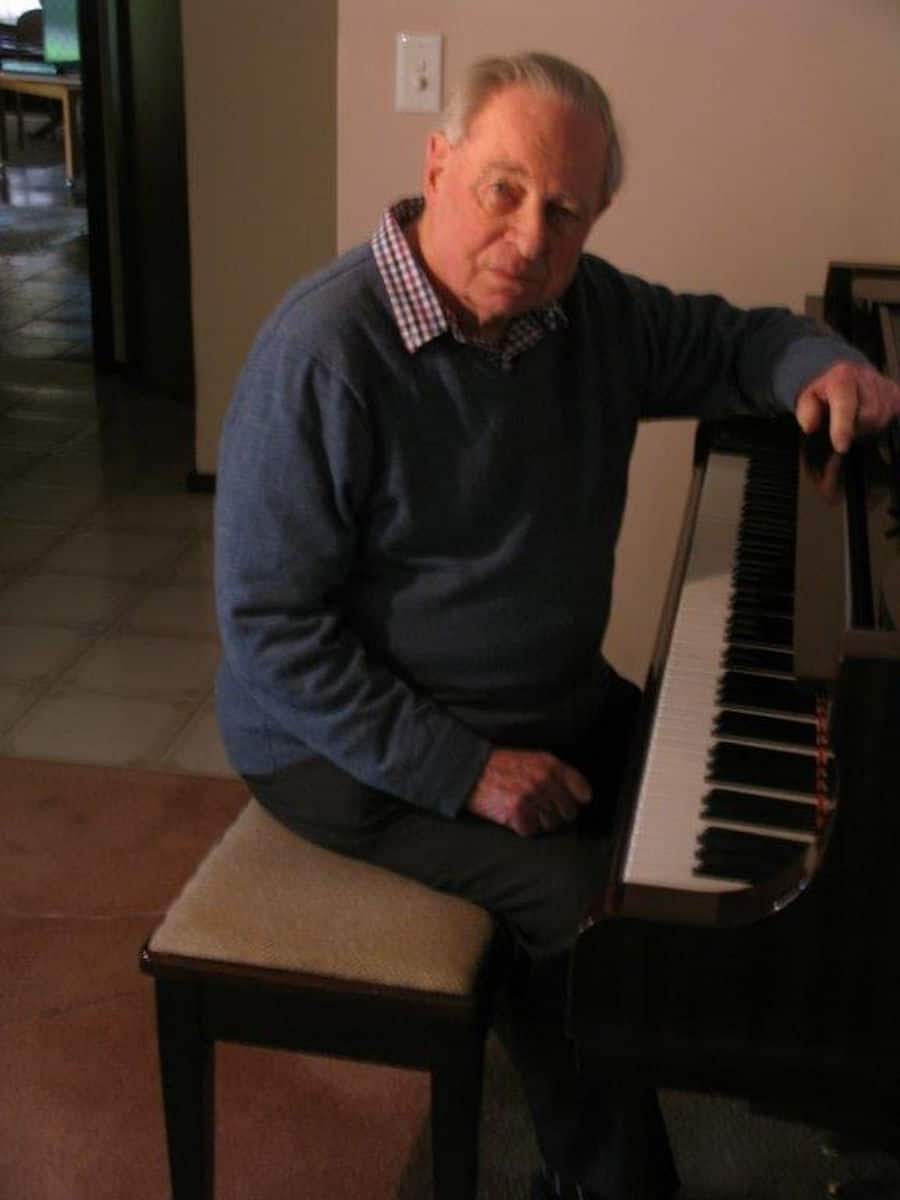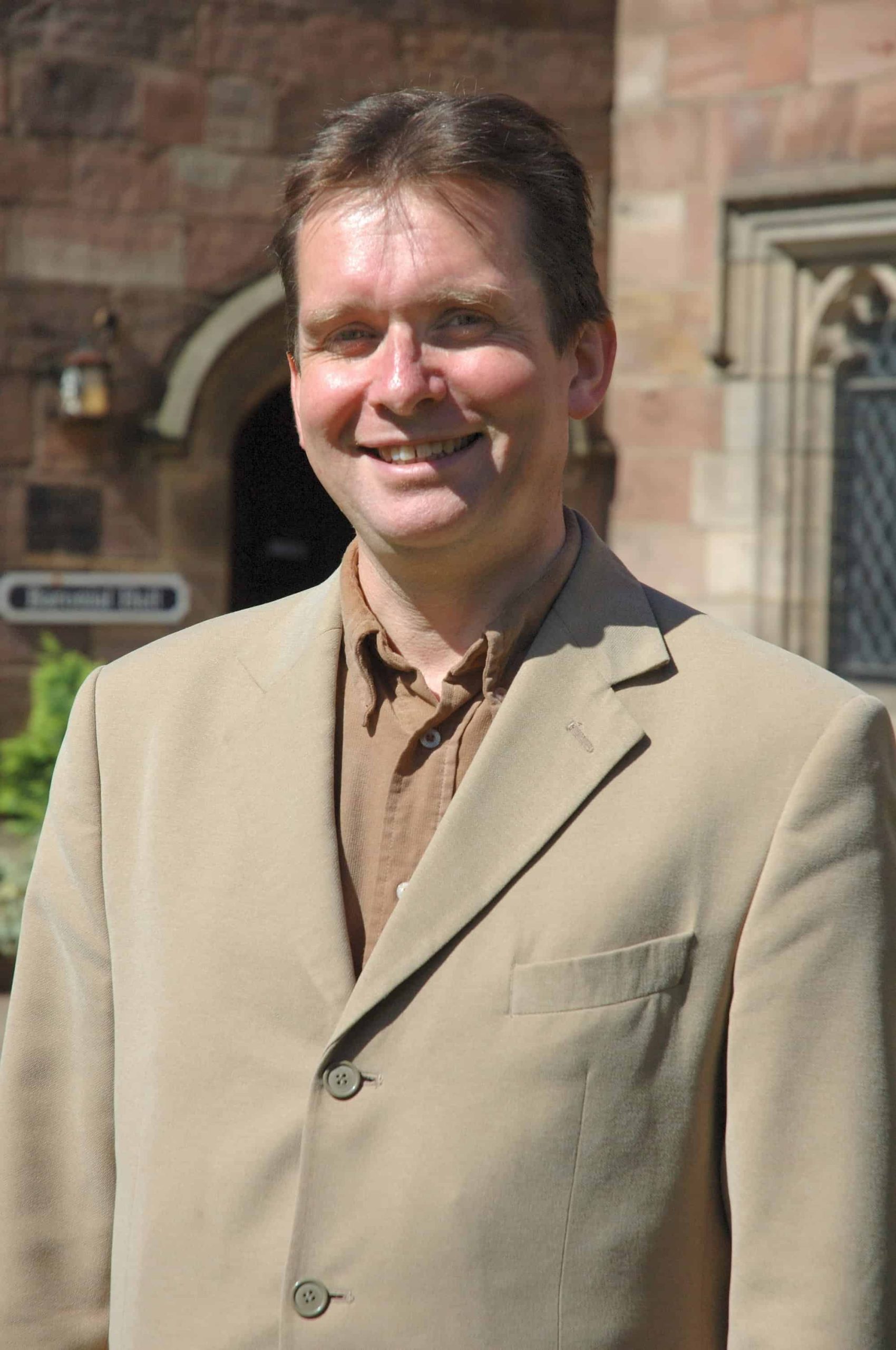Divine Art Records is delighted to announce the forthcoming recording of the 18 Piano Sonatas by British-born Australian composer Geoffrey Allen, who has just celebrated his 92nd birthday with the completion of his most recent sonata. Allen has had a great deal of influence in the Australian music world since retiring from his career as a librarian in 1992, when he founded The Keys Press, which functioned to promote and publish Australian music until 2014. Among other activities he has proved to be a very accomplished composer indeed. Stephen Sutton, CEO of the Divine Art group, says “It’s wonderful to anticipate the recording of Geoff’s complete sonatas. We recorded his 4th sonata along with the delightful Three Piano Pieces back in 2001 (Divine Art DDA 25007 ‘Blue Wrens’ – pianist Trevor Barnard), so I was really pleased that the opportunity came along to produce a complete set.”
The pianist on the new set is Murray McLachlan, Head of Keyboard at Chetham’s School of Music and one of Britain’s most brilliant and busy pianists. Please see below for an appraisal of the Allen Sonatas by McLachlan.
The recordings will take place at the Royal Northern College of Music, Manchester on five dates commencing on September 25, 2019, with engineer Stephen Guy. The set will be issued on two 2-CD sets and two double albums; the exact make up of each disc/set is not yet finalised but will include the 17 numbered Piano Sonatas and a rhapsodic piece from 2003 titled ‘Rhapzonata’. The sonatas stretch from the first composed in 1959 (later revised) to no. 17, completed only a few weeks ago (April 2019).
The two sets will be released in the first half of 2020 on the Métier label, Divine Art’s primary new-music imprint, as MSV 77209 and MSV 77210
Murray McLachlan on Geoffrey Allen:
I’m extremely excited and eager to get started with the extraordinary project of recording for Divine Art the complete 17 sonatas of the 90-year-old Australian based British born composer Geoffrey Allen. Geoffrey’s story is unique: He was born in 1927 in Essex and went to Oxford before emigrating in 1952 to Sydney, Australia. After a brief period as a geography teacher he had much success as a librarian, working first in Sydney then in Perth and travelling internationally for his work. His musical talent and facility was first apparent in 1950 when three of his four songs were performed at an Oxford University Music Society concert. Clearly composing has continued and grown apace over nearly seventy years of serious endeavour.
Geoffrey is characteristically modest about his work, but he feels that the year 1989 was especially crucial for his artistic development. A visit to Spain with his second wife had a huge impact on his piano Sonata No. 2 and after this work a great momentum – a great rush of energy and creativity – unquestionably occurred. This momentum has continued right up to 2019 with final touches to sonata 17 only appearing a few weeks back!
Geoffrey has mentioned many pieces and composers who have influenced him – with the notable exception of Beethoven! Performances heard as a student of Brahms horn trio and Sibelius 4th Symphony made a strong impression, but he also was influenced by performances early on that he heard on the radio from figures including Bax, Milhaud, Khatchaturian, Bliss, Ireland and Walton.
From the 1950s in Australia Geoffrey was a fervent supporter of new music from his adopted homeland. He helped found and organise Brolga Records, a pioneering venture that enabled contemporary Australian music to be available as commercial LPs for the first time. After his retirement as a librarian in 1992 he established The Keys Press, a one-man publishing activity concentrating on Australian classical music that continued functioning until 2014.
How can one describe Geoffrey’s music? It is all too easy to start classifying and referring to new or unfamiliar music via references to music that is familiar. What is really interesting and special about Geoffrey’s music is the fact that it looks orthodox on the page initially, but is in fact extremely thought-provoking. He has a unique way of combining the familiar with the unfamiliar: Geoffrey’s music is always extremely well crafted and looks deceptively simple on the page, but as soon as you begin to play any phrase from his works you discover that he is always subtly reinventing the wheel! There is a unique special voice. The textures and structure will appeal to diverse audiences. If you enjoy Prokofiev, Tcherepnin, Barber and even Tippett, you will admire the Allen aesthetic too – diverse though these famous names are!
There is unquestionably subtle originality, extraordinary variety and colourful fascination in Geoffrey Allen’s prolific output for the instrument. The collection of recordings we are about to make will unquestionably amount to a significant contribution in the ongoing development of the 20th/21st century piano sonata.













